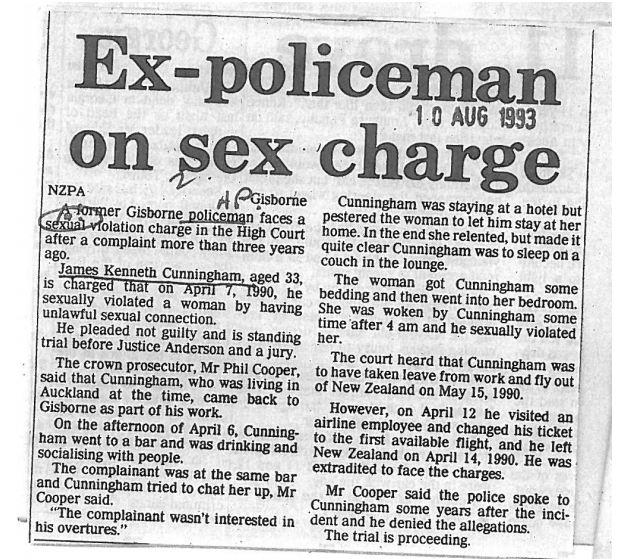Ardent followers of this blog will already have read the post, The Albert Park – A receivership – Conspiracy to falsely accuse for those readers who have only recently joined us here at Laudafinem we will briefly recap.
Detectives Malcolm Thomas and Matt Willcox had been working together to destroy the the businesses of a family in Gisborne. The plot had first been hatched on or around the 4th June of 1987. The first attempt, an attack on the brothers licensing application had failed, although it had cost the family and ultimately a group of local creditors a considerable amount. The additional substantial loss the brothers had incurred as a result of the attack on their licensing application had obviously not been budgeted for. The brothers then set about trying to refinance the restaurant project so as to settle the remaining creditors.
Obtaining funding for their many projects had never posed a problem for the family before. This time however strange events started happening. Finance companies would produce loan offers only to suddenly, without explanation have the contracts withdrawn at the eleventh hour. At the time it seemed very strange we now know that Detective Willcox had been using his contacts in the finance and insurance sector to obtain confidential information on the brothers business dealings. One of these contact was a Mrs Buckingham who worked in the offices of a firm of insurance loss adjusters in Peterborough Street, Christchurch.
It was through this woman that Willcox had been able to source the details of the families assets, loans and loan applications. Willcox then contacted the company involved and using his inherent credibility, as a detective with the fraud squad, advised the financiers that the loan applicants were organised criminals and associated with mafia operations in New Zealand. This, needless to say was completely false, the finance companies however were not to know that. They had to rely on what this police officer had said.
The brothers inevitably were unable to obtain appropriate financing and had to resort to dealing with a third tier company RSL. By August 1988 that company Registered securities limited had yet to settle the final advance of around $300’000.00. Meanwhile Detectives Malcolm Thomas and Willcox had also been contacting the creditors who remained unpaid.
Thomas’s motive in surreptitiously contacting the creditors was simple. He was inciting them to repossess equipment essential for the businesses trading.
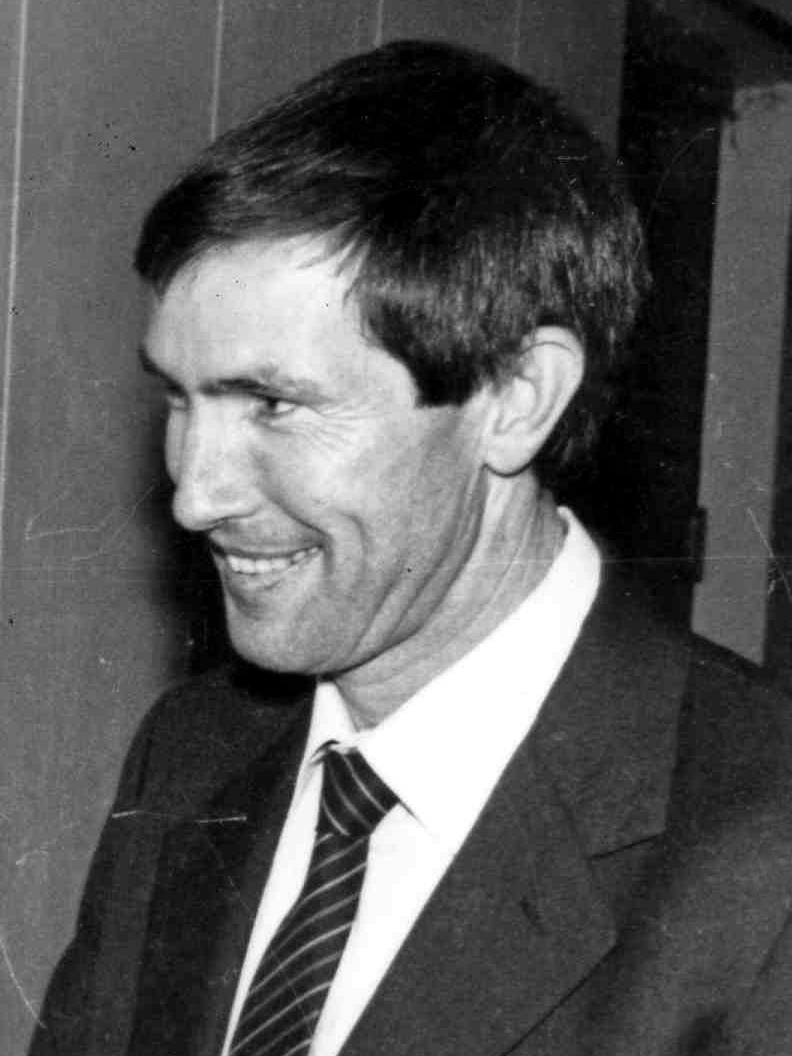
Corrupt Detective Malcolm “turkey neck” Thomas at his trial for the Kidnapping and torture of Dickie “Diesel” Maxwell – December 1987
All of this malevolent and corrupt behavior was born of hatred and a personal obsession to get one of the brothers back for having given evidence for the prosecution in an earlier trial; in which Detective Willcox was the accused assailant.
By Mid August 1988 Thomas had been successful in convincing a handful of the creditor’s that the brothers were out to shaft them, advising the creditors he had contacted to go in and grab their gear. Thomas then reasured the creditors that he and Steven Dimery, an ex-police officer and colleague turned repossession agent, would assist with the thefts, additional support being provided by another ex-cop, Brian McBreen.
McBreen owned the security company that had the contract to protect the building, he also had total control of the businesses burglar alarms. Thomas and Willcox had planned to lay criminal charges against the family members as a smoke screen and of course revenge. Determined to inflict as much damage as he could Thomas organised for a local journalist at the Gisborne Herald, Marianne Spence, to enlist the services of the much larger, , more importantly nationally distributed, National Business Review.
The journalist that Spence had contacted was none other than a very young Jenni McManus. Spence then successfully convinced McManus that the family were organised criminals “The Mafia” she fed McManus a tale of woe; the Gisborne Herald would not run the story- that she personally feared for her safety, a claim that she would later have supported by Detective Malcolm Thomas and Senior Sergeant Alan Davidson – Mcmanus of course having telephoned them both at Spences suggestion.
By late August 1988 the finance Juggernaut Registered Securities Limited (RSL) had finally collapsed and with it any chance of the brothers receiving their contracted $300’000.00. The RSL collapse further panicked the creditors which in-turn strengthened Thomas and Willcox’s plans.
By Mid September they had been successful, the families business’s were in a state of collapse and Thomas had started, as planned to lay the false charges. Thomas had not however counted on the brothers own investigations. Both Willcox and Thomas had convinced themselves that the brothers would “Do a runner to Australia” so convinced was Thomas that he actually advised a police colleague in Auckland, in a written memo, of his belief.
This joint belief would later prove fatal for Thomas and Willcox and the conspiracy as a whole. By mid September, unbeknowst to Thomas the brothers had managed to collect a significant body of evidence, much of it taped, which proved beyond any doubt that Willcox and Thomas had been involved in the burglary and theft of the families property.
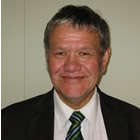
Gisborne District Commander Rana Waitai – three years after the event slept through Cunningham’s trial because he knew the jury was rigged; the fix was in!
They had also been able to evidence the involvement of the alarm monitoring and security company contracted to protect their properties. The owner Brian McBreen had in fact been responsible for organising the buildings locks to be drilled out, unlawfully providing Thomas and Dimery with set of keys for the new lock, so that they could enter at will without the families knowledge.
One of the business’s however, Albert Park Nursing Home, had managed to slip through relatively unscathed. Once the brothers had evidenced the corruption they set about trying to salvage what they could to keep this particular business, owned by the eldest brother and a sister, operational.
The finance company that had advanced the funds for this project had been advised of the problems and the involvement of corrupt police. The company concerned had undertaken to either advance further funds or give the company the time required to refinance.
Having reached agreement with the financiers, it was then decided by all stakeholders that the chattels from the now collapsed Gladstone Park Nursing Home be transferred, along with the residential clients, to the Albert Park Home.
However, unbeknownst to the family, contrary to the agreement that had been struck, Farrow Finance had surreptitiously appointed Ferrier Hodgson with a view to taking control of the business and selling it. To make matters worse the soon to be appointed receiver had been dealing with Detective Malcolm Thomas.
Farrow struck without warning on the 13th October 1988. Malcolm Thomas had again become involved. Thomas realised that as long as the family had cash flow they could well recover all of the businesses given enough time. That in turn put both Thomas and Willcox at risk. They were both now well aware that the brothers had evidence against them. Both were however in the dark as to what it was or its extent.
Thomas needed to destroy any chance of the family recovering from this attack. Thomas had by now laid a raft of false fraud charges against almost every member of the family. If the conspiracy were to be exposed Thomas stood to serve a prison term, as did Willcox and the Police would also have been held responsible for the lose of 6.5 million dollars – the stakes were very high.
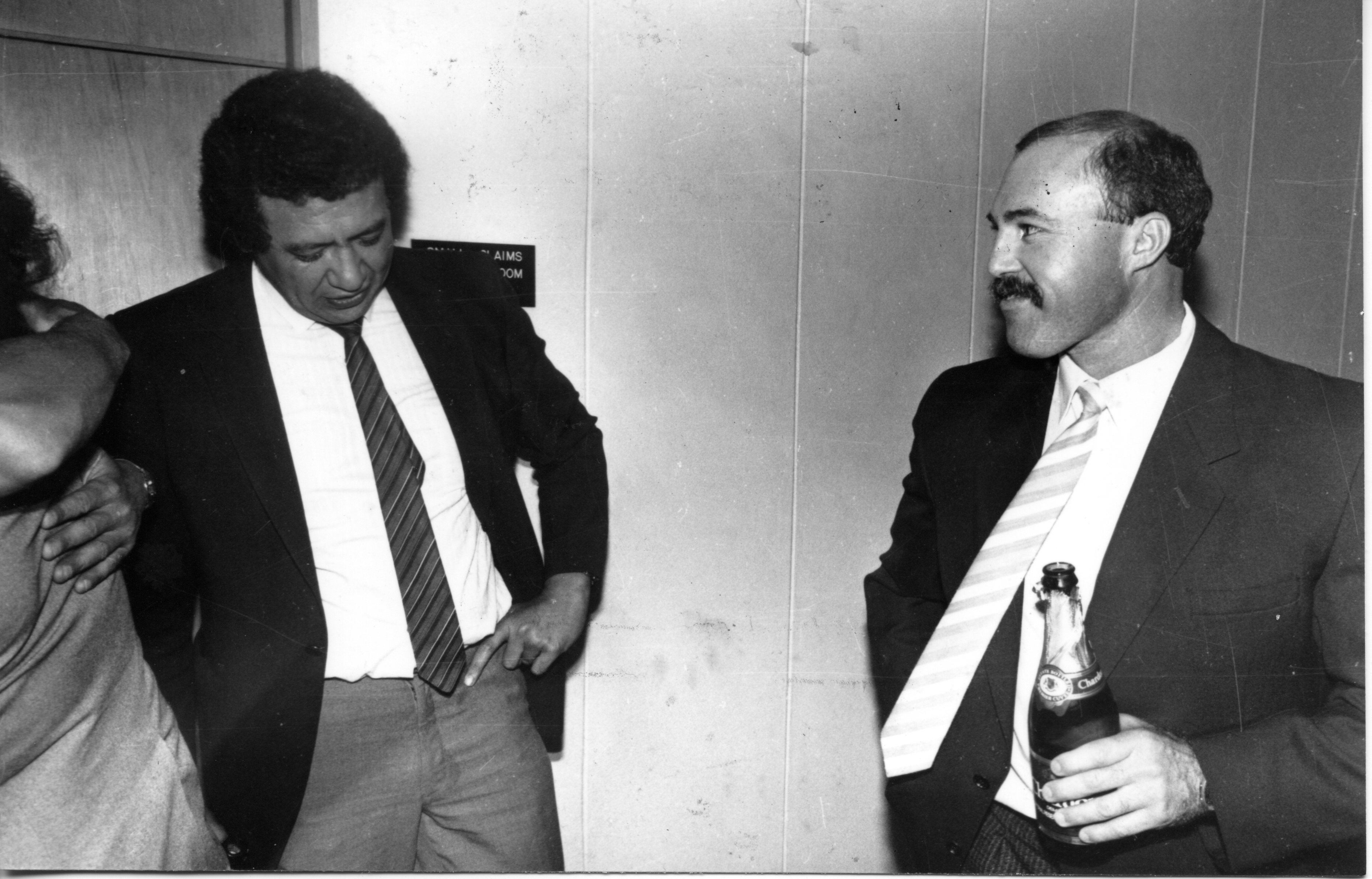
From left: Detectives Hemi Hikawai (aka Coco-cop) & Dave Neilson – We know that Dave just fell in love with South Africa it had the perfect climate for bent cops on the run; no extradition treaty!
Thomas’s first attempt to have the brothers removed from Albert park had failed. He needed to get the family out and further destroy their credibility. This is where Detective James Kenneth Cunningham enters the picture. Thomas and Brian McBreen conspired to set the brothers up on an assault charge. They would then send in four of their bent collegues to ruff up and arrest the falsely accused men.
Thomas knew that if all went to plan this would give the receivers the ability to take possession of the business and the families ability to recover would be negligible.
On the 18th of October Thomas sent in his troops, the baton welding detective James Kenneth Cunningham was leading the charge. with out a search warrant the four officer illegally entered the building threatening the occupants. Soon after Thomas’s plan started to unravel. The police retreated leaving behind photographic evidence of the assault. The resulting complaint resulted in a complete cover-up. The local commander buried Cunningham’s outragiously violent behaviour with fabricated statements from the police present, Cunningham included, despite clear photographic evidence of the attack and witness statements, Derecourt’s investigation cleared Cunningham and the others of any wrong doing.
The evidence including the photograph would later appear in another nationally distributed paper, The Sunday News. The young journalist responsible for breaking the story had intended to write a front page second article the following Sunday. Those plans however were thwarted as a result of the papers editor having received a threatening telephone call from police headquarters in Wellington. According to the journalist police had threatened to blacklist the paper, starving it of police related stories.
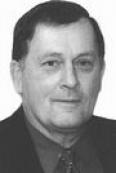
Senior Sergeant Alan Geoffrey Davidson, just like coco-cop Hemi Hikawai went on to a career in local politics
Despite the second story being scrapped, Detective Cunningham’s strange and violent behavior, details of the subsequent police cover-up and the photograph were now in the public domain. This liability now posed a problem, not just for Detective Thomas, for the police command, headed up by John Jamieson, and in a very circular fashion therein lies a critical clue, the crux, the rub, the six degrees of separation.
Cunningham had been the officer delegated by Thomas with the responsibility for arresting the brothers and issuing the fabricated criminal assault charges. Thomas knew he might squeal like like a stuck pig if arrested and charged. Thomas had also ensured that the local papers ran with the story in series of articles designed to promote an image of the brothers as violent criminals, gangsters and gun running drug dealers, Cunningham knew about that and Thomas’s inappropriate relationship with the local medias staff; in particular, Marianne Spence.
Thomas endeavoured to railroad the trial into the conviction he desperately needed, he however failed. After almost two years the false charges against the brothers were eventually tried in Napier, a jury trial that quickly acquitted the victims of Cunningham and Thomas’s malevolent corruption.
The trial was fairly straight forward with one peculiar exception. The detective responsible for arresting and falsely charging the pair was absent. No explanation, his evidence tendered in statements only. No one was advised of the fact that Cunningham would not be attending. In the normal course of events Cunningham was required to have been present, after all he had lead the investigation and the defense had the right to cross examine him, which of course is impossible without his being there.
Years later one of the acquitted brothers happened upon two small newspaper articles the second of which was reporting on the the case of a New Zealander, an ex-policeman who had failed to show up for his court hearing at the United Kingdoms Old Bailey. The man had jumped bail and was subsequently the subject of an arrest warrant.
In the first article however the name of that policeman leaped straight out of the page; Detective Constable James Kenneth Cunningham. This had to have been the real reason that Cunningham had been a no-show at the brothers trial. But why wasn’t the brothers barrister advised, why wasn’t the trial judge advised and why was the Jury advised of the genuine reasons for Cunningham’s absence?
Why had nothing appeared in the local Gisborne papers reporting these offences. Cunningham had fled New Zealand following a serious complaint of serious sexual offending and not a peep from the Gisborne Herald. The Gisborne Heralds journalists had an extraordinarily close relationship with the local cops, no a day went past without at least one of them attending the early morning police briefings, a tradition that ended only very recently – the ending of which cause the Gisborne Heralds editor to scream blue murder. Not a peep out of the national papers, the state television broadcaster or Radio New Zealand’s Roger Handford, who also had Carte Blanche access to the Gisborne Police. Even now two decades later copies of the news reports have mysteriously all but vanished from public archive, why?
Why would police actively seek to suppress this particular story? How did Cunningham manage to slip out of the Country unchallenged?
We will start with the many complex reasons why the police might have wanted a lid placed on the Cunningham case. Detective Malcolm Thomas, remember him? Well Thomas knew that Cunningham being arrested and charged would have been catastrophic not only for any chance of obtaining his much needed convictions, but it had the potential to seriously affect his own health and welfare, someone like Thomas would have been popular in prison; given the number of innocent men he and his mates had fitted up, for all the wrong reasons.
Given the brothers many pre-existing complaints of police corruption, illegal searches, unlawfully threatened arrest, abuse of process and more importantly the complaint that they had laid against Cunningham, with Derecourts subsequent admission of Cunningham’s peculiar “sub-conscious habits”. Cunningham’s arrest would provided a field day for honest journalists. The likely result, a massive public outcry! One only need look at the more recent Louise Nicholas case to gauge the sort of public outrage that would have ensued.
Gisborne’s police force and its reputation had already suffered serious damage, they had yet to recover from Dickie Maxwell’s horrendous allegations. Funnily enough, most Gisborne locals believed that Detective Thomas the ring leader, and a cabal consisting of his bent CIB mates, had in fact Kidnapped and brutally tortured Dickie Maxwell. Even a solicitor, Tony Adeane, who had worked on their defence was convinced of their guilt. But like the jury, most of the locals didn’t care, they were often prone to turning a blind eye to trifling matters; such as the truth. As far as Gisborne locals were concerned Maxwell only got what was coming to him; in their eyes no more than he deserved.
Such was the level of local support for corrupt police officers, Chief Inspector Ratahi, the man responsible for charging those involved, was forced to leave town, transferred to Wellington. The ongoing threats he had been receiving, which Ratahi believed had been delivered by his delightful Gisborne police colleagues.
The brothers situation was vastly different. The bent cops in this, their latest time bomb, had blatantly and criminally interfered with civil contracts. They had also conspired to destroy the businesses of ordinary everyday citizens. Everyday businesses such as nursing home’s, restaurants and residential properties fell well short of the polices normal business of criminal activity.
The brothers had also spoken with the office of the minister responsible for police and Justice Quilliam, the man charged with heading up the recently formed police complaints authority. The Commissioner of police, John Jamieson had also been warned of the local CIB’s outrageous behaviour: Barrister Russell Fairbrother having written to Jamieson demanding an independent investigation and review.
In short there were 6.5 million dollars worth of reasons for the local police to have forewarned Cunningham, delayed the investigation and put him on a plane to Durban, South Africa, were Cunningham was to be met by a very close friend of the good old boys in the Gisborne CIB, then bury the charges for a time, whilst stopping the story hitting the front pages of the nations papers. The Sunday News, under duress, may well have been prepared to excuse a bent small town cop who had a habit of violently welding a baton, but this was something quite different, it involved a young woman and serious allegations serious sexual offences, predatory behaviour by a police officer.
Update (2012/05/26 at 9:02 pm);
In this post we reported on the time spent in South Africa, by both bent cops David Neilson and James Kenneth Cunningham. Today, many many months later (almost a year), we recieved a comment (to a quite different post) from an anonymous individual who hails from South Africa, a long way from Gisborne New Zealand. He has used the monika “Bwana” , we assume he’s using the term in the native Swahili (Bantu) context (Not always favorable; slave master or tyrant). Bwana writes:
“Hemi might look like a sack full of assoles (obviously he agrees with that assessment) but he was a great cop and a best friend”
BWANA
We here at Lauda Finem are wondering whether it was “Bwana“, and or his mates that harboured the accused rapist, a criminal on the run, James Kenneth Cunningham. Trust us “Bwana” , what ever it takes we will find out!
The Tribunal Evidence Of Ex-Cop Steven John Dimery (laudafinem.wordpress.com)Related articles
- Corrupt CIB and uniformed police officers, Gisborne 1988 – 1990 (laudafinem.wordpress.com)
- Is Gisborne a horrible town? (laudafinem.wordpress.com)
- Phil Kitchin – Judge prefers local mans story (laudafinem.wordpress.com)
- Psychologist James Cunningham – The recycling of a bent and violent cop (laudafinem.wordpress.com)
- Merv the “Perv” Is Dead. (laudafinem.wordpress.com)
- Detective Malcolm Thomas – The Private Informations (laudafinem.wordpress.com)
- Fairfax’s Lying Wanker Phil the Con Man Kitchin Caught Again (laudafinem.wordpress.com)
- Off to the dark side – Jenni McManus joins Ernst &Young (laudafinem.wordpress.com)
- Detective Malcolm Thomas – Hi-lite Industries – the second attempted theft (laudafinem.wordpress.com)
- Jenni McManus – Marianne Spence, Roger Handford, John Jones and the very bent Senior Sergeant Chester Haar (laudafinem.wordpress.com)

